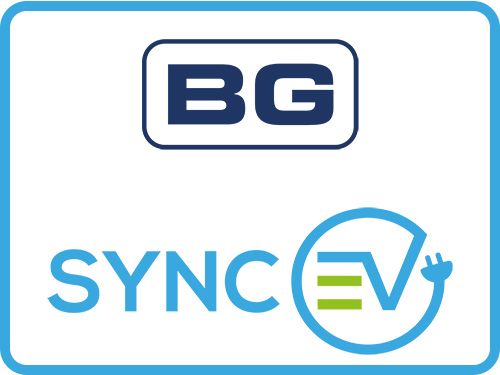Prostate Cancer UK And phs Group Formally Partner To Propel Male Incontinence Campaign In One Of The Charity’s Most Valuable Corporate Partnerships Yet

Prostate Cancer UK has announced one of its most valuable formal partnerships with the UK’s biggest hygiene services provider, phs Group, in a bid to drive forward their joint Dispose with Dignity campaign.
Prostate cancer is the most common cancer in men, with more than 52,000 men in the UK getting a diagnosis every year. One in eight men, and one in four Black men, will get prostate cancer.
The formal two-year partnership forms an important part of the next phase of the campaign, providing an even stronger collective platform. phs Group, which looks after 120,000 customers across 300,000 locations in the UK, will be one of Prostate Cancer UK’s biggest corporate partners.
phs Group, which is headquartered in Caerphilly in south Wales, but operates across the UK, Ireland and Spain, has a workforce of over 3,000 employees in the UK, 70% of whom are male.
Matthew Brabin, CEO of phs Group said: ”The average colleague at phs Group is a 44-year-old male, so supporting Prostate Cancer UK with their research and awareness of prostate cancer will inevitably one day support our own colleagues or their family and friends. Our purpose as an organisation is putting people at the heart of our products and services, and this partnership is a great example of doing that.
“Life-saving prostate cancer treatment and male incontinence, for some men, can go hand in hand, but men are being failed by not having the appropriate facilities to dispose of incontinence products that allow them to live sociable and happy lives. Our initial work with Prostate Cancer UK was an important catalyst that addressed what was, until then, a deafening silence on the issue of incontinence for men.”

The announcement of the partnership follows a high-profile year for Dispose with Dignity, which sparked a national conversation on the issue of male incontinence.
It secured widespread support, with MPs raising the issue in parliament and sanitary bins being introduced in men’s toilets by major UK businesses including motorway services provider Moto and sustainable welfare provider Garic.
Matthew Brabin continued: ”This formal charity partnership is testament to the campaign’s success, and a natural progression of this relationship. Men deserve to dispose of their incontinence products with dignity, and we’re confident this renewed commitment will enable both us and Prostate Cancer UK to make this ambition a reality.”
An eye-opening whitepaper underpinned the campaign and was launched earlier in 2023, drawing attention to the scale of the male incontinence problem, showing that:
- More than half of UK men surveyed (a cohort of 2,036 men across ages) experience urinary incontinence
- One in five of this cohort had some urinary incontinence symptoms as early as 18-25 years of age, contradicting the assumption that it is only experienced by older people
- Of a separate group of 500 men who live with UI; one in five (19%) reported having a bad day-to-day experience when out because they were rarely able to find bins of any kind in public toilets to dispose of incontinence products
Driven by this data, the campaign is calling for sanitary bins to be installed in all male public and workplace washrooms. A new, dedicated male sanitary bin has been developed by phs Group and Prostate Cancer UK.
Chiara de Biase, Director of Support & Influencing at Prostate Cancer UK, said: “A man living with incontinence should be free to leave the house without worrying about whether or not he can dispose of his used pads discreetly and hygienically. Despite the fact that 1 in 3 men over 65 in the UK experience incontinence, many are living in anxiety and shame due to the taboo surrounding the issue and the dire lack of sanitary bins in men’s toilets.
“Together with phs, we’ve already made huge strides in tackling this taboo and ensuring more men with incontinence have access to basic facilities. We’ve started a national conversation about it, reaching MPs, businesses, and organisations across the whole of the UK. Now, those in charge are listening and starting to take action.
“I’m delighted that Prostate Cancer UK and phs are continuing to combine our forces as we enter an official partnership and take our next steps to help men living with incontinence. As well as our public campaigning, we’re excited that this partnership will also provide some brilliant opportunities for colleagues at both organisations to connect with each other, to help raise lifesaving funds with events, and to talk openly and positively about men’s health.
“More than 52,000 men are diagnosed with prostate cancer every year. Prostate Cancer UK is here to give every man the power to navigate the disease – and this new partnership with phs will be a huge boost to our vital work.”

“It's stressful enough having to adjust to wearing pads, but then add to that the fact that lots of men's toilets don't have a sanitary bin where you can dispose of them, and it feels impossible to lead a happy, normal life. Thankfully my incontinence has got better after another procedure, but there are thousands of men out there who are crying out for better facilities. I'm optimistic that the work being done by Prostate Cancer UK and phs will bring about positive change and more bins in men’s loos!”
Nigel Rowland, from Milford Haven in Pembrokeshire, was diagnosed with prostate cancer in March 2022. He said: ”Getting the news I had prostate cancer was really scary, and having to tell my daughters was horrible. Thankfully, I got tested early enough to treat it and get rid of the cancer.
“I had surgery, and while it saved my life, I had incontinence afterwards. That took a toll on my mental health and my happiness, because I'd go out not knowing if I'd be able to properly change my pads and dispose of them. It's so simple: if guys had proper sanitary bins in toilets, like women do, those with incontinence could live their lives to the full, without the shame and stress of potentially having to carry around used wet pads.
“It's great that Prostate Cancer UK and phs have got more people talking about this, and that sanitary bins are now popping up in men's loos all over. I hope more men start to open up about incontinence, and speak up for themselves.”
For more information about the Prostate Cancer UK x phs Group Dispose with Dignity campaign, visit www.phs.co.uk/equality/male-incontinence

























































